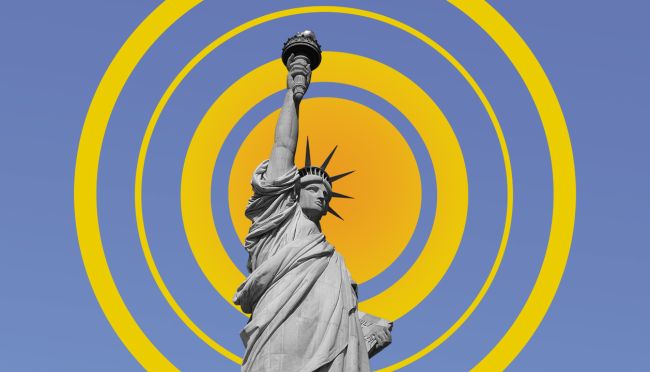
- 11 Apr 2024
- In Practice
Why Progress on Immigration Might Soften Labor Pains
Long-term labor shortages continue to stoke debates about immigration policy in the United States. We asked Harvard Business School faculty members to discuss what's at stake for companies facing talent needs, and the potential scenarios on the horizon.

- 18 Mar 2024
- Research & Ideas
When It Comes to Climate Regulation, Energy Companies Take a More Nuanced View
Many assume that major oil and gas companies adamantly oppose climate-friendly regulation, but that's not true. A study of 30 years of corporate advocacy by Jonas Meckling finds that energy companies have backed clean-energy efforts when it aligns with their business interests.

- 12 Mar 2024
- Research & Ideas
Publish or Perish: What the Research Says About Productivity in Academia
Universities tend to evaluate professors based on their research output, but does that measure reflect the realities of higher ed? A study of 4,300 professors by Kyle Myers, Karim Lakhani, and colleagues probes the time demands, risk appetite, and compensation of faculty.

- 04 Mar 2024
- Research & Ideas
Want to Make Diversity Stick? Break the Cycle of Sameness
Whether on judicial benches or in corporate boardrooms, white men are more likely to step into roles that other white men vacate, says research by Edward Chang. But when people from historically marginalized groups land those positions, workforce diversification tends to last. Chang offers three pieces of advice for leaders striving for diversity.
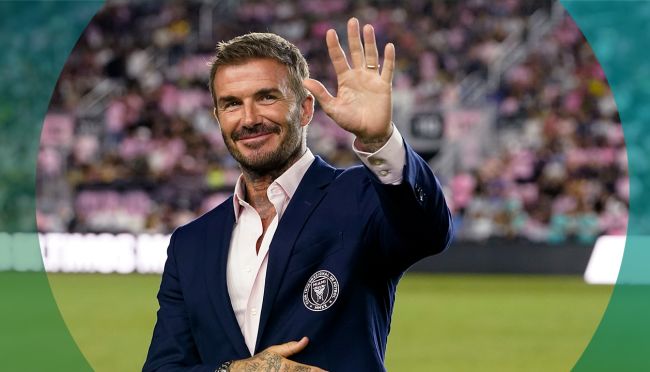
- 29 Feb 2024
- HBS Case
Beyond Goals: David Beckham's Playbook for Mobilizing Star Talent
Reach soccer's pinnacle. Become a global brand. Buy a team. Sign Lionel Messi. David Beckham makes success look as easy as his epic free kicks. But leveraging world-class talent takes discipline and deft decision-making, as case studies by Anita Elberse reveal. What could other businesses learn from his ascent?
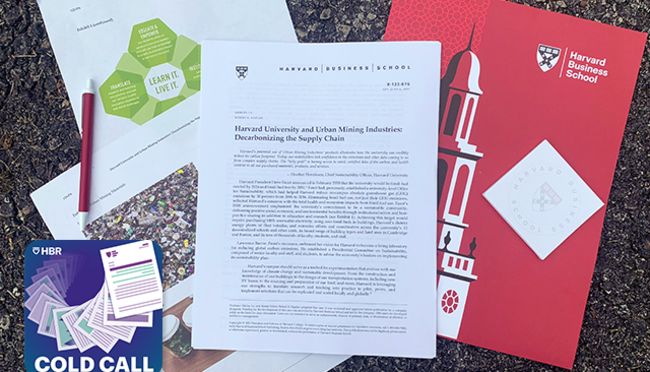
- 27 Feb 2024
- Cold Call Podcast
How Could Harvard Decarbonize Its Supply Chain?
Harvard University aims to be fossil-fuel neutral by 2026 and totally free of fossil fuels by 2050. As part of this goal, the university is trying to decarbonize its supply chain and considers replacing cement with a low-carbon substitute called Pozzotive®, made with post-consumer recycled glass. A successful pilot project could jump start Harvard’s initiative to reduce embodied carbon emissions, but it first needs credible information about the magnitude and validity of potential carbon reductions. Harvard Business School professor emeritus Robert Kaplan and assistant professor Shirley Lu discuss the flow of emissions along the supply chain of Harvard University’s construction projects, the different methods of measuring carbon emissions, including the E-liability approach, and the opportunity to leverage blockchain technology to facilitate the flow of comparable and reliable emissions information in the case, “Harvard University and Urban Mining Industries: Decarbonizing the Supply Chain.”

- 27 Feb 2024
- Research & Ideas
Why Companies Should Share Their DEI Data (Even When It’s Unflattering)
Companies that make their workforce demographics public earn consumer goodwill, even if the numbers show limited progress on diversity, says research by Ryan Buell, Maya Balakrishnan, and Jimin Nam. How can brands make transparency a differentiator?

- 25 Jan 2024
- Research & Ideas
Being a Team Player: Why College Athletes Succeed in Business
Forget rocks for jocks. A study by Paul Gompers of more than 400,000 Ivy League athletes probes how the rigors of college sports can help people climb the corporate ladder faster and into higher-paying positions.

- 09 Jan 2024
- Research & Ideas
Could Clean Hydrogen Become Affordable at Scale by 2030?
The cost to produce hydrogen could approach the $1-per-kilogram target set by US regulators by 2030, helping this cleaner energy source compete with fossil fuels, says research by Gunther Glenk and colleagues. But planned global investments in hydrogen production would need to come to fruition to reach full potential.
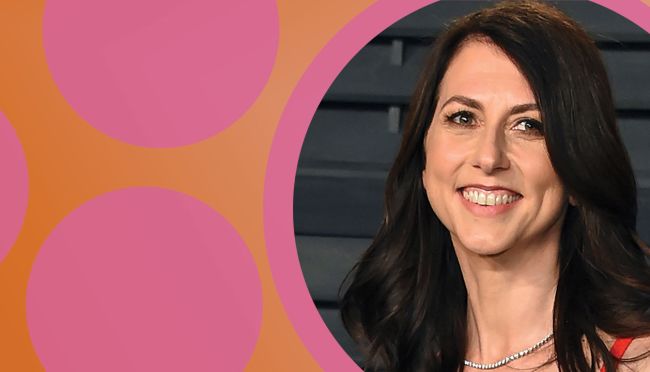
- 19 Dec 2023
- Research & Ideas
$15 Billion in Five Years: What Data Tells Us About MacKenzie Scott’s Philanthropy
Scott's hands-off approach and unparalleled pace—helping almost 2,000 organizations and counting—has upended the status quo in philanthropy. While her donations might seem scattershot, an analysis of five years of data by Matthew Lee, Brian Trelstad, and Ethan Tran highlights clear trends and an emerging strategy.
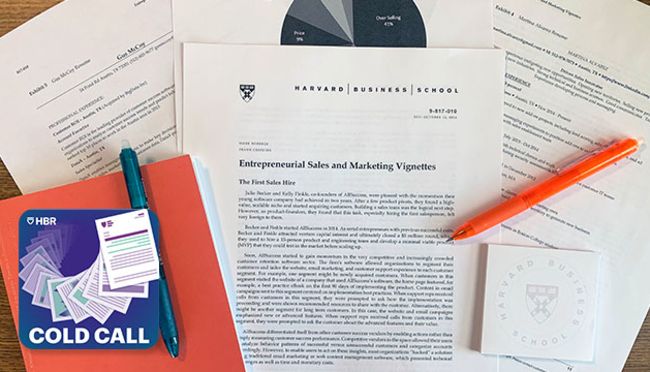
- 05 Dec 2023
- Cold Call Podcast
What Founders Get Wrong about Sales and Marketing
Which sales candidate is a startup’s ideal first hire? What marketing channels are best to invest in? How aggressively should an executive team align sales with customer success? Senior Lecturer Mark Roberge discusses how early-stage founders, sales leaders, and marketing executives can address these challenges as they grow their ventures in the case, “Entrepreneurial Sales and Marketing Vignettes.”
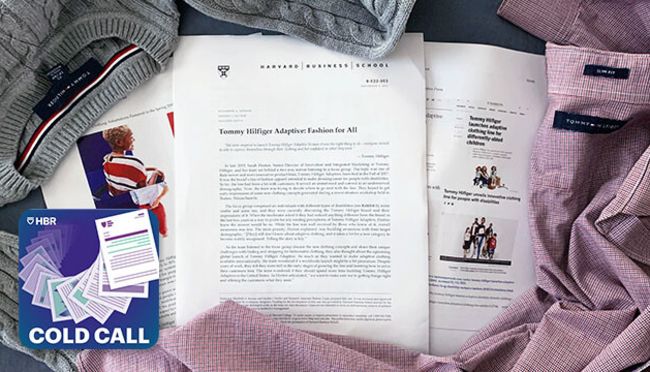
- 05 Dec 2023
- Cold Call Podcast
Tommy Hilfiger’s Adaptive Clothing Line: Making Fashion Inclusive
In 2017, Tommy Hilfiger launched its adaptive fashion line to provide fashion apparel that aims to make dressing easier. By 2020, it was still a relatively unknown line in the U.S. and the Tommy Hilfiger team was continuing to learn more about how to serve these new customers. Should the team make adaptive clothing available beyond the U.S., or is a global expansion premature? Assistant Professor Elizabeth Keenan discusses the opportunities and challenges that accompanied the introduction of a new product line that effectively serves an entirely new customer while simultaneously starting a movement to provide fashion for all in the case, “Tommy Hilfiger Adaptive: Fashion for All.”

- 05 Dec 2023
- Research & Ideas
Are Virtual Tours Still Worth It in Real Estate? Evidence from 75,000 Home Sales
Many real estate listings still feature videos and interactive tools that simulate the experience of walking through properties. But do they help homes sell faster? Research by Isamar Troncoso probes the post-pandemic value of virtual home tours.

- 27 Nov 2023
- Research & Ideas
Voting Democrat or Republican? The Critical Childhood Influence That's Tough to Shake
Candidates might fixate on red, blue, or swing states, but the neighborhoods where voters spend their teen years play a key role in shaping their political outlook, says research by Vincent Pons. What do the findings mean for the upcoming US elections?
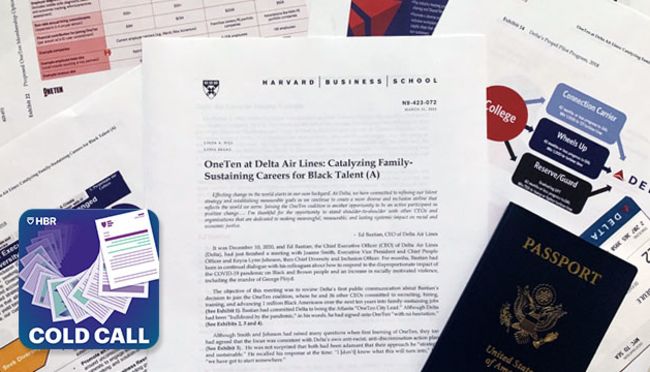
- 21 Nov 2023
- Cold Call Podcast
Cold Call: Building a More Equitable Culture at Delta Air Lines
In December 2020 Delta Air Lines CEO Ed Bastian and his leadership team were reviewing the decision to join the OneTen coalition, where he and 36 other CEOs committed to recruiting, hiring, training, and advancing one million Black Americans over the next ten years into family-sustaining jobs. But, how do you ensure everyone has equal access to opportunity within an organization? Professor Linda Hill discusses Delta’s decision and its progress in embedding a culture of diversity, equity, and inclusion in her case, “OneTen at Delta Air Lines: Catalyzing Family-Sustaining Careers for Black Talent.”

- 21 Nov 2023
- Op-Ed
The Beauty Industry: Products for a Healthy Glow or a Compact for Harm?
Many cosmetics and skincare companies present an image of social consciousness and transformative potential, while profiting from insecurity and excluding broad swaths of people. Geoffrey Jones examines the unsightly reality of the beauty industry.
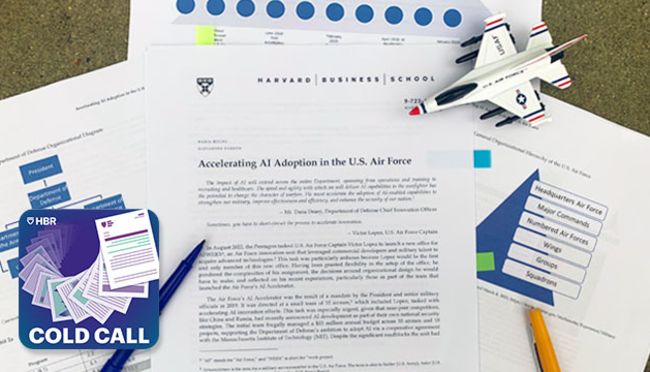
- 24 Oct 2023
- Cold Call Podcast
How the United States Air Force Accelerated AI Adoption
In August 2022, the Pentagon tasked U.S. Air Force Captain Victor Lopez with launching a new Air Force innovation unit that leveraged commercial developers and military talent to acquire advanced technologies. Having been granted flexibility in the setup of the office, Lopez pondered the complexities of his assignment and the decisions around organizational design he would have to make. It’s often believed that only small start-up organizations can innovate, but a lot of innovation happens in big organizations, including government. Harvard Business School assistant professor Maria Roche is joined by Major Lopez to discuss the challenges of digital transformation in a large bureaucratic organization and the specific choices the U.S. Air Force needed to make when launching its AI Accelerator in her case, "Accelerating AI Adoption in the United States Air Force."

- 16 Oct 2023
- HBS Case
Advancing Black Talent: From the Flight Ramp to 'Family-Sustaining' Careers at Delta
By emphasizing skills and expanding professional development opportunities, the airline is making strides toward recruiting and advancing Black employees. Case studies by Linda Hill offer an inside look at how Delta CEO Ed Bastian is creating a more equitable company and a stronger talent pipeline.
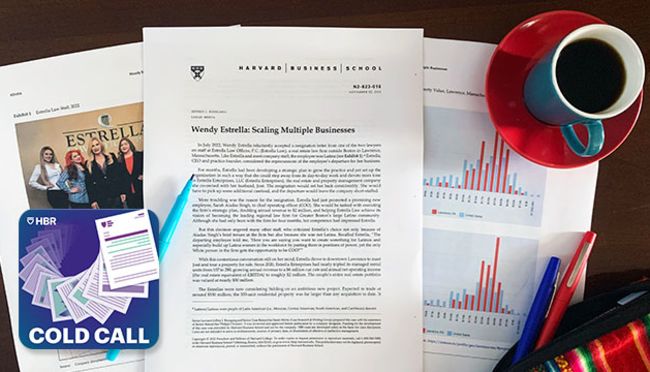
- 10 Oct 2023
- Cold Call Podcast
Scaling Two Businesses Against the Odds: Wendy Estrella’s Founder’s Journey
Entrepreneur Wendy Estrella is attempting to simultaneously scale her law practice, as well as her property management and development company. What strategy will benefit both businesses, and is there a downside to scaling them together, rather than focusing on each one separately? Harvard Business School senior lecturer Jeffrey Bussgang and Estrella discuss her unique founder’s journey – from immigrating to the U.S. to building both of her businesses in Lawrence, Massachusetts despite the specific challenges she faced as a minority entrepreneur. The related case is “Wendy Estrella: Scaling Multiple Businesses.”

Amazon in Seattle: The Role of Business in Causing and Solving a Housing Crisis
In 2020, Amazon partnered with a nonprofit called Mary’s Place and used some of its own resources to build a shelter for women and families experiencing homelessness on its campus in Seattle. Yet critics argued that Amazon’s apparent charity was misplaced and that the company was actually making the problem worse. Paul Healy and Debora Spar explore the role business plays in addressing unhoused communities in the case “Hitting Home: Amazon and Mary’s Place.”